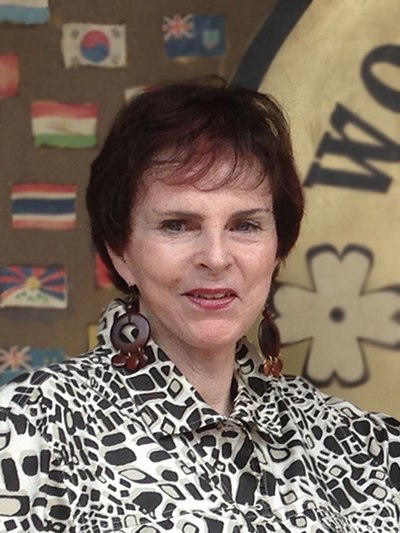- 23 Nov, 2025
- 0
- Judith Hand
- PeaceVoice
“A House of Dynamite,” the “Failsafe” Film for 2025
“A House of Dynamite,” the “Failsafe” Film for 2025
by Judith Hand
770 words
My interest in conflict and war goes back decades. In 1961, the film Failsafe starring Henry Fonda as the U.S. president presented a dire warning about the nuclear arms race taking off. It revealed our vulnerability: human error, miscommunication, and technological failure. The tragic ending was shocking. Film director Kathryn Bigelow’s new A House of Dynamite is equally gripping, demonstrating to viewers the reality of our modern world, our closeness to global destruction. Failsafe was alarming. House of Dynamite is foreshadowing.
In 1961, I was at UCLA earning a doctoral degree in evolutionary biology and studying animal behavior, including humans. My early interests included conflict resolution and gender differences. Decades later, after a period of writing fiction and promoting one of my novels, I was drawn back to the topic of war. Voice of the Goddess, a Bronze-age epic, told of a non-violent, non-warring, goddess-worshipping culture on the island of Crete and a warrior hero from the nearby mainland Mycenaean culture. To promote the book, I gave a talk entitled, “If women ran the world there would be no war.”
During the talk, a woman in the audience challenged my book’s core message. She cited the work On Aggression by my academic forefather, Konrad Lorenz, arguing that aggression is an unchangeable part of human nature. With limited speaking time, I couldn’t explain why Dr. Lorenz was only partly right, particularly when it comes to the relationship of women to war.
But the question did rattle my certainty that if women ran the world, war wouldn’t exist. I subsequently launched into two and a half decades of research to answer the questions: when did we start making war, why do humans make war, and could we stop? In my research, I determined that men have not been and will not be able to end war without significant shared leadership with women. The number of women who were able to break into powerful decision-making spaces was, to my knowledge, so few in 2015 that I felt the problem wouldn’t be remedied in my lifetime. In 2018, I wrote my last book on the subject – War and Sex and Human Destiny. It felt like a farewell to the subject.
Time moved on, and I went back to writing fiction. But six years later, Mika Brzezinski, a TV host on Morning Joe, announced that Forbes magazine would soon host another meeting in Abu Dhabi of 500 powerful women from around the world. Women from Forbes’s annual 50 Over 50 and 30 Under 30 lists would gather to address the world’s challenges. I caught my breath! A sufficient empowerment of women had happened without my noticing. This change in women’s status, along with advancements in technology and communication since the 1960s meant that ending international wars had become a genuine possibility.
So how does that relate to A House of Dynamite? The global community has built a house and stored explosives within it: landmines, Semtex, C-4, atomic and other bombs, and yes, dynamite. And we are choosing to live in that house. Democracies around the world appear to be losing their grip. Nuclear-armed nations are spending to refurbish and upgrade nuclear arsenals. The president of Russia, after invading Ukraine, on several occasions has brandished his nuclear saber. Non-nuclear nations like Iran are feeling the urgent need to acquire their own Weapons of Mass Destruction (WAMDs). All this to say, an enforceable international peace treaty is urgently needed. The good news is that in this century we have the knowledge and the means to fashion one.
In 2024, I, with several close friends, laid the foundation for a campaign to make enduring international peace a reality, Project Enduring Peace (PEP). Drawing on my research, we have developed a petition that outlines the means to secure a lasting treaty, based on historical examples from the Iroquois Confederacy to the European Union. If the global community successfully blocks wars between nations, none need fear attack by another. Disputes would be resolved by negotiations or other means. Eventually, nuclear arsenals would be perceived as dangerous and expensive burdens. Nations would become secure enough to abandon them, allocating the saved resources elsewhere.
A House of Dynamite makes the case that we need to act before it is too late. PEP is offering a perspective that anyone can support by signing the Project Enduring Peace Petition urging the United Nations to make haste to begin peace treaty negotiations. It’s our choice: we can continue to risk living in our existentially dangerous house or rise up, escape the treadmill of international warfare, and leave behind an enduring legacy of global peace.
~~~~~~~~~~~~~~end~~~~~~~~~~~
Dr. Judith L. Hand is an evolutionary biologist and author whose work centers on the biological roots of human conflict and the pathways to a warless future. She is also the Co-Founder of Project Enduring Peace, a non-profit committed to educating the public about peace systems and ending all inter-state wars through a global peace treaty.
© 2023 PeaceVoice

peacevoice